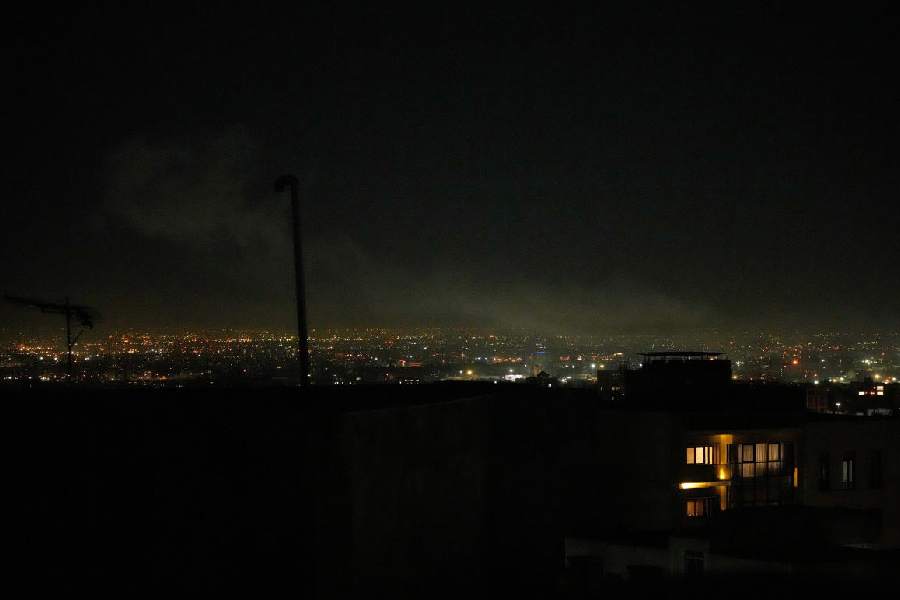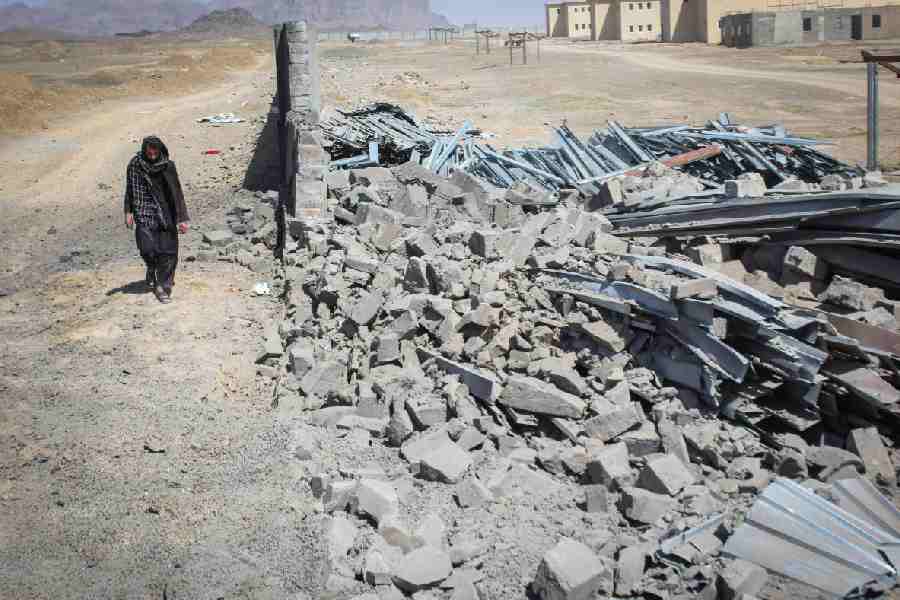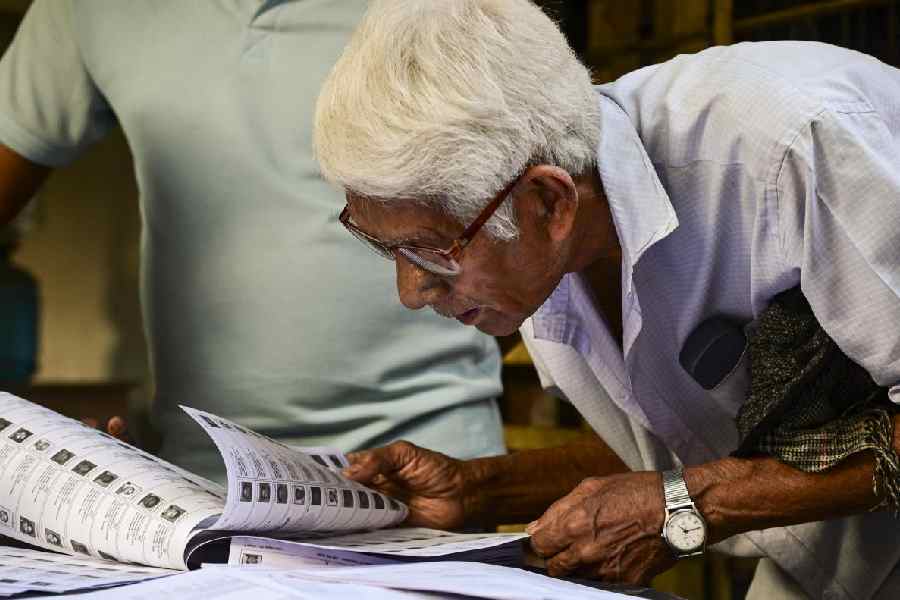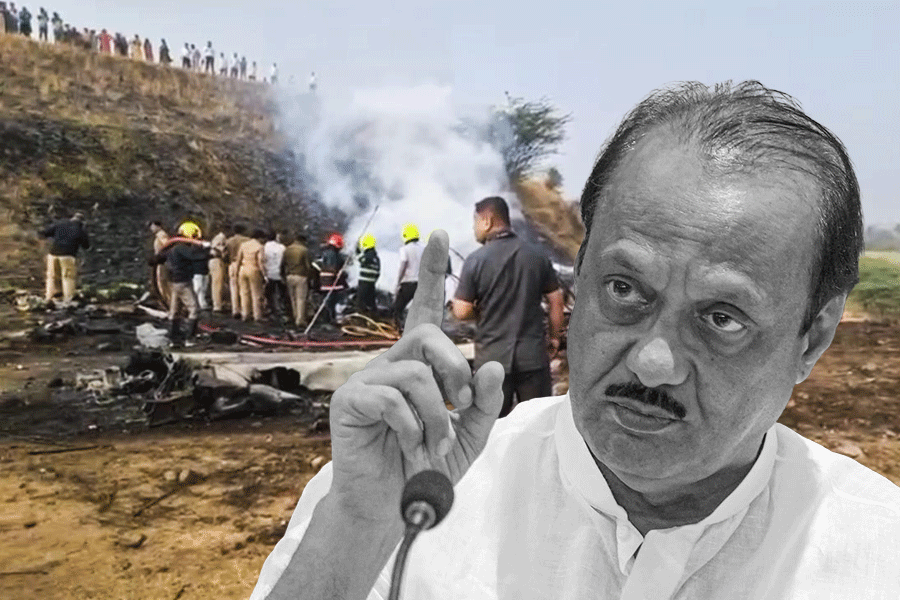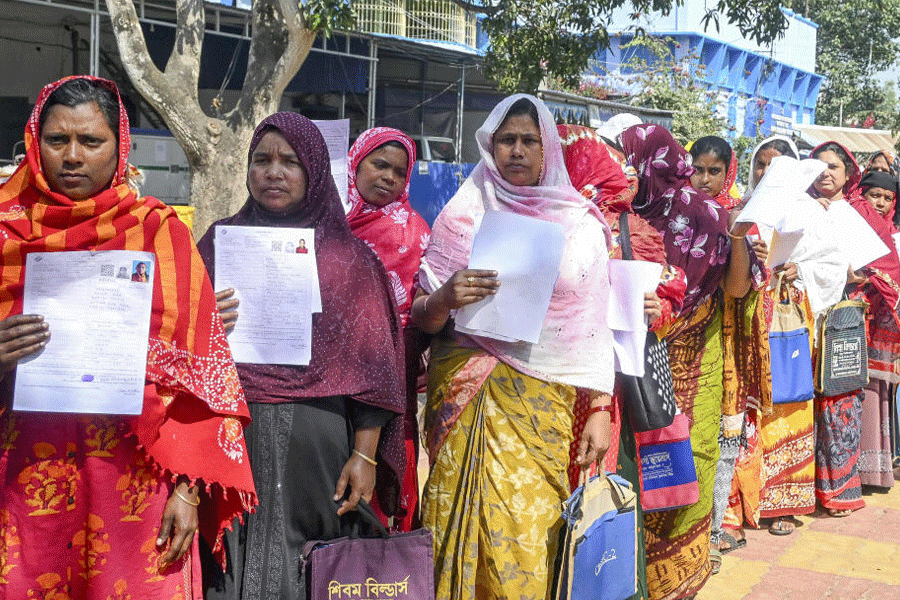 |
A motorcycle parking bay on a small close in Mayfair is rather an unusual place to interview anybody, especially since neither of us is riding any of the bikes nor sporting helmets and leather jackets. But having been cooped indoors from the morning, Boman Irani wanted a breath of “fresh London air” and who am I to complain? So we walk out of the elegant surroundings of the Nehru Centre and end up on a nearby side street behind the bikes.
In Mumbai, where he has enjoyed a meteoric rise to success ever since he burst on the screens as an eccentric doctor in Munnabhai MBBS, Irani, 47, can get mobbed if he stands on a street corner. Here, outside a multi-storey car park, we only get the occasional stare from chauffeurs, bikers and pedestrians.
Irani is in the city for the London Film Festival with his latest film Well Done Abba directed by Shyam Benegal. It is his first film — off mainstream commercial cinema — and the first with veteran director Shyam Benegal. It is also his first film in the lead role. “I needed someone who could hold up the entire film single-handed, like a tent pole,” was how Benegal effusively described him while introducing the film earlier in the day. Typically, Irani said it was actually a reference to his generous size (all six feet two inches of him) and nothing to do with his acting skills.
It is a typical repartee from the man who comes across as completely self-effacing. A father of two sons (Dhyanesh, 24) and (Kayo, 21) and happily married for the last 24 years to wife Zenobia “who manages everything,” Irani has come a long way from his days as a businessman running an Uncle Chips shop in Dadar in the early eighties. He was clearly meant for better things. The chip shop folded up and Irani dusted his old camera and went back to his first love: photography. Soon he became a professional photographer doing ad campaigns, fashion shoots and portraits. It was during a photo shoot with Bollywood choreographer Shiamak Davar that he was persuaded to audition for a role in Alyque Padamsee’s play Roshni. He got the role and made his mark.
He was 38 when Rahul da Cunha asked him to play the role of a 75-year-old Parsi in I’m Not Bajirao. Irani excelled at the role, right down to perfecting the Parsi shuffle, and the Mumbai theatre world welcomed a new talent. Mahatma Vs Gandhi, directed by Feroz Khan, followed, with Irani playing the Mahatma (shedding 18 kilos to fit into the role). The play ran to packed houses in Durban and toured successfully around the world. Though he was given a role in the Shah Rukh starrer Josh, it was as the eccentric Dr J.C. Asthana that Irani conquered Bollywood, with crazy wig, accent and comic genius in tow. Today he has acted in over 50 films, kissed Shabana Azmi on screen and become one of Bollywood’s most sought-after actors.
“Yes, Shabana and I have a great on-screen chemistry,” he laughs. “We enjoy working together.”
In Well Done Abba, Irani plays a middle-aged chauffeur, Armaan Ali, working for a young city executive in Mumbai, who takes a month’s leave to get his daughter married but returns after three months. When his employer sacks him, he tells him the bizarre story of why he was held up in the village: apparently somebody stole the family well.
Combining village comedy and political satire, the film is tailor-made for Irani, who plays the troubled father of Muskaan (Minissha Lamba) with his characteristic humour and sensitivity.
“It is the preparation that is the most enjoyable part,” says Irani. “I do it in all my films. I like to get into the character. I wanted the father-daughter relationship to be tender and strong, so I worked with Minissha. I spoke to her a lot on the sets, got to know her likes and dislikes, so I knew that I was pressing the right buttons, and the relationship looked convincing.”
The homework has always been crucial for Irani, who changes himself chameleon-like for every role, whether it is for the famous Dr J.C. Asthana in Munnabhai MBBS, Lucky Singh (for Lage Raho Munnabhai), the mafia don estate agent in Khosla Ka Ghosla or the likeable Parsi newspaper editor in Little Zizou. For Lucky Singh he stayed with the Sikh community for a time. In Well Done Abba, it was his chauffeur — Moin Chacha — who gave him insights into his character and the correct local accent.
I ask him what it was like to have made the transition from serious theatre roles to Bollywood comedy. “I have always loved Hindi films, I grew up on them like everybody else. So I told myself one day that I don’t just want to watch Hindi films. Why am I being cagey about acting in them? I decided to do mainstream commercial cinema, but bring to it something that I want to do, and do it in my style.
“You could call it a game plan,” he laughs. “In the last six years in Bollywood I have done 50 films. I felt it was important to be seen. I felt that if I was popular in Hindi films, audiences from the mainstream films would come to see a film like Little Zizou or Being Cyrus because I am in it. The audience from this world would go to that world and audiences from the theatre and the art film world would also go to see the commercial films because they are fun. Lots of actors who do only one kind of cinema get very bitter. I get the best of both worlds.”
So is comedy his natural choice or did it just happen that way? Irani is reflective. “You know, I act in comedy, but my roles are not necessarily funny. I play a part and look for what it stands for. I’ve played a villainous land grabber, a ruthless newspaper editor, an amiable father. A bad guy isn’t a bad guy all the time. A comic guy has his sad moments. You have to look for that moment and capture it, find the Achilles’ heel of the character. Sometimes it is a situation that is funny, not the character itself. In Well Done Abba, I play a father who is soft and serious. There is nothing funny about him, but it is how he emerges in the crisis situation and this translates itself on screen in an engaging and amusing way.”
He describes working with Benegal — Shyam Garu as he calls him — as a wonderful experience. “We shot for 32 days at one go in a reconstructed village in Ramoji Film City and had the most wonderful time. It was like a family. On the last day we got drunk and danced on top of the well. I realised how much I missed the set after I returned to Mumbai.”
A magic moment from the film for Irani is a scene where he makes a small speech to a television reporter, saying that he is not going to give up the fight to get back his well. “Shyam Garu told me that I should make the speech but not look like a politician and wait for applause, that I should return to being the humble chauffeur. But the body language changes. Suddenly Armaan Ali is sitting straight. It is like the fear has gone from him.
“Today we live in fear all the time. I am afraid I might say “Bombay” and not “Mumbai” and someone will come after me. We are constantly looking over our shoulders. We are afraid of the system and the politicians. It is a culture of fear.”
While his son Dhyanesh is not interested in films and is studying for an MBA in New Jersey, younger son Kayo wants to go to film school and learn editing and production. Does it mean that Irani may one day be tempted to direct films? “I am taking it as it comes,” he says. “I am enjoying it right now. But, yes, I would like to direct. It is the ultimate creative satisfaction one can get, but it will happen when it has to.”
I ask him about the directors and actors that have inspired him. “Balraj Sahni,” says Irani almost immediately. “I love the dignity that he had, the sensitivity he brought to films. If there is one film that I will call universal, it is Ray’s Pather Panchali. It would appeal to anyone whether he is from Maharashtra or Mexico. It is the essential humanism of the film. That is the sort of story that appeals to me.”
The next session in Nehru Centre is about to begin and I take my leave of the talented Mr Irani. Till we meet him in his next avtar: conman, crook or crusader, for he can surely do them all.





